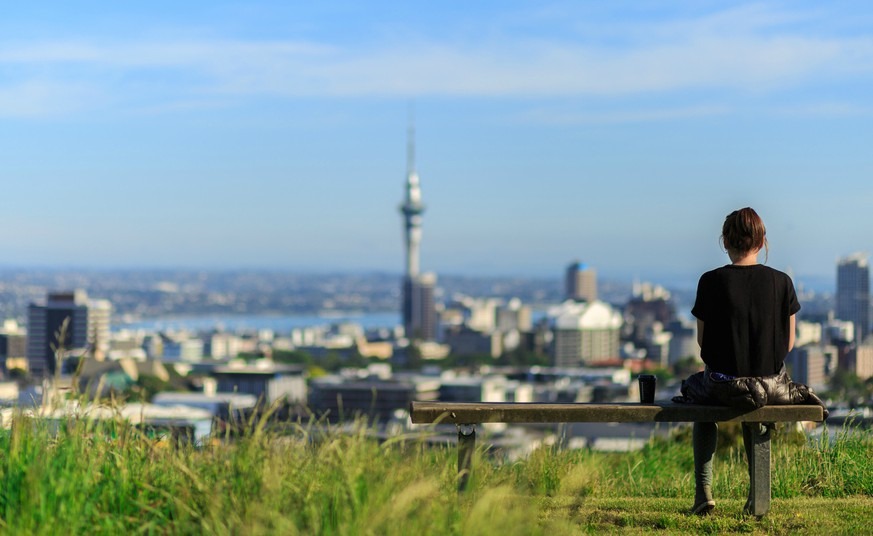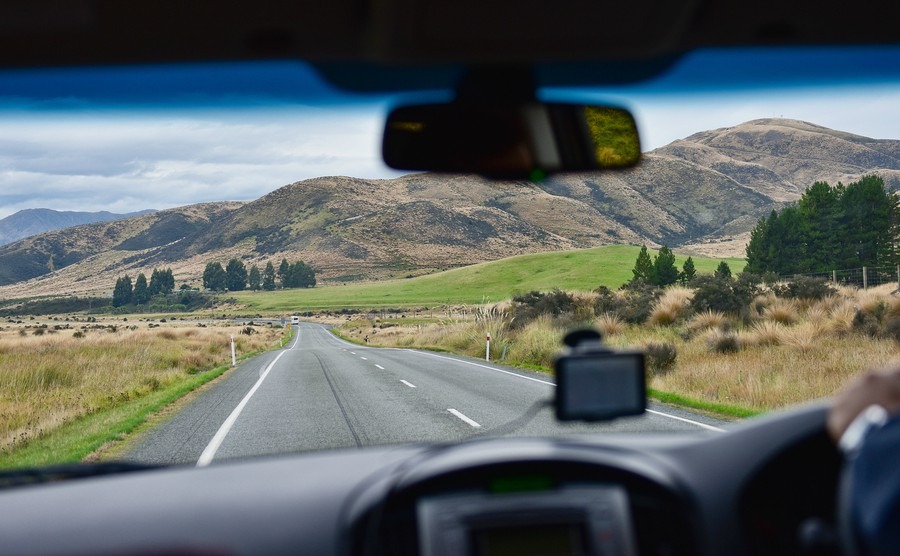No-one said that starting a new life in New Zealand was going to be simple – good things rarely are. But there are practical steps that will make you feel a part of your new community and ready to go and make friends.
Moving 11,430 miles from home is a big deal in anyone’s book. The language of New Zealand may be English but there are going to be a lot of tiny factors that you may not have considered, or discovered on your previous visits, that take a little getting used to. While it will be some time before you feel completely at home in New Zealand, there are steps you can take straight away to help you and your family settle in.
Watch films and documentaries about New Zealand to get a grasp of the history and culture of the place you’ll be calling home
Before you go
It’s often the unexpected things that knock us for six when we move overseas. Fortunately, there’s a simple way to combat this – do your research into the culture of New Zealand before you go. Watch films and documentaries about New Zealand to get a grasp of the history and culture of the place you’ll be calling home. Listen to local radio in New Zealand via internet radio stations. Find out what is wowing the cultural life of New Zealand and immerse yourself in the most popular books and films. Enjoy the process; who doesn’t like an excuse to stick on a good movie!

Suburb + sunny beach = your new home
Your kids will benefit greatly from reading about their schools and the classes and activities they offer. It means that their new environment won’t be such a frightening mystery to them. Have your kids start a project on New Zealand, listing the wildlife and things you‘ll be doing there. Write down all the activities and attractions you can visit as a family. Knowing that you’ll be able to swim with dolphins, go zorbing or explore a national park when you arrive will ensure you’re all excited about the fresh start you’ve worked hard for, rather than worrying about what you’re leaving behind.
When you get there
An international move involves tons of admin. There’s no avoiding it, so we recommend tackling it in an orderly fashion to stop yourselves from stressing out when you should be enjoying your new home. While you may have already found a job, you’ll need to sort out the following before you’ll feel truly at home…

Don’t feel isolated in New Zealand, read how to make friends
1. Make a nest
While an Airbnb, a friend’s house or a hotel is great in the first couple of weeks, you’ll never settle in until you and your stuff has a place to call home. You can start looking long before you leave, using local websites, so you’ll have a good idea of rental rates and the types of properties available in the areas that suit you before you leave. It may be better to get there before parting with any money – even lovely New Zealand has less salubrious neighbourhoods – but Google street view is invaluable in allowing you to check out the locality. Short- to medium-term rental contracts are more common in New Zealand than long-term contracts, which is ideal if you’re wanting to check an area is right by living there for a while. A good website for rental properties is TradeMe. The median rent for a four-bedroom house in Auckland currently sits at $625 (£330) per week – which seems reasonable given New Zealand’s high wages.
You will need to speak to a currency and payments specialist about how to get money sent to you in New Zealand. We recommend Smart, rated “excellent” on Trustpilot for money transfer and currency exchange.
To rent a property you’ll need to put up a bond – usually the equivalent of four weeks rent. If you find a property through an agent, you’ll be subject to a letting fee which is usually the equivalent of one week’s rent.

Empty roads and driving on the left
2 – Get some wheels
Until you’ve got your bearings, it’s easy to feel isolated and a bit of a bumpkin when you first arrive in a new country. It’s helpful both logistically and psychologically if you can get back in control of the things you are familiar with, such as driving. So if you love your car in the UK you should get one in New Zealand asap. Then you’ll be able to hop in the car and get exploring. Indeed New Zealand’s public transport isn’t great, so outside Wellington and Auckland city centres you’ll need wheels.
Having a New Zealand driving licence in your wallet is one of those little things that will help you feel at home.
You can find used cars again online at TradeMe, or you can attend a Car Fair, which are held regularly in most main cities. Make sure it is registered and has a Warrant of Fitness (WOF) which means it’s safe to drive. WOF tests are carried out every six months and the date of the next appointment must be displayed in the windscreen of every car, along with the road tax. While car insurance is not compulsory in New Zealand, it is recommended that you at least have third party insurance.
If you’re nervous about driving on new roads, at least you’ll still be driving on the left. Read up on the rules of New Zealand’s roads before you get behind the wheel. You’ll be able to drive using your UK licence for 12 months, but having a New Zealand driving licence in your wallet is one of those little things that will help you feel at home.
3 – Apply for your IRD number
Apply for your IRD number promptly to avoid being taxed more than you should on your New Zealand income. You can apply online as soon as you arrive in the country.
Read your New Zealand Viewing Trip Guide so you’re up on what to look out for if you’re seeing properties.
4 – Get a doctor
As soon as you’ve secured a place to live, you’ll need to register yourself and your family with a local GP. This isn’t essential but – shock, horror! – visiting a doctor isn’t always free like in the UK and it costs less to visit if you’re enrolled at the practice. To find the best person for you, consult your local District Health Board (DHB) or your local Primary Health Organisation (PHO). You will also need to register with the PHO to receive the subsidised healthcare you’re entitled to as a resident of New Zealand.

Is it time for a new hobby?
Making friends
After the excitement (and stress) of an international move, you might think you deserve a bit of a breather; to sit at home and skype old friends, try and find X-Factor and Question Time on the TV so you can stay in touch with UK gossip and politics. Don’t! It’s all too easy to isolate yourself with Facebook when you should be making new connections and building your new Kiwi support network.
The workplace is a fantastic place to meet likeminded people, so say yes to after-work drinks or a lunchtime sandwich. While you can’t expect all your colleagues to become lifelong friends, there may be a handful that you instantly warm to.
If there were hobbies you particularly enjoyed in the UK, track down local hobbyists. Getting a few things into the diary will get you into a routine that makes you feel more settled. This is also an ideal time to take up new hobbies. Have you always fancied trying Pilates or having a go at life drawing? Now’s your chance. Taking part in activities that interest you are a great way of enjoying yourself and meeting likeminded people. Attend local sporting fixtures, join a gym, find a local book club, try your hand at volunteering – the options for making connections are endless if you just slap on your game face and get out there. Use your newbie status to break down the barriers that in a few months will have grown up, so get baking and take a cake in to the office, knock on your neighbour’s door, chat to people in the coffee shop. If you’re unsure how to make your place in a new community, watch the movie Groundhog Day for some tips.
One sure-fire way to make friends within your community is to get involved with a local project. Perhaps there’s an organisation that organises local events that you could join or maybe you could join a school committee. Make sure you introduce yourself to your neighbours. Kiwis are friendly folk – if you let them know that you’re new in town, you’ll be invited round for drinks and dinner in no time. Round Table is a great community for men, or sign up to Neighbourly to find out more about where you live and to connect with fellow residents.
Convinced you make can make it there? Then now is the time to make serious plans to emigrate. Read our Emigration Guide today!
If you should feel down…
If you’re missing friends and family and it all feels too much – remember the reasons why you emigrated. You moved to New Zealand for a better way of life, for better job opportunities, and to give yourselves and your children the chance to live an outdoor lifestyle. Remind yourself of these reasons when you’re feeling homesick, or when you just can’t find a teabag that cuts the mustard. Get out there and enjoy what the country offers. Enjoy the activities you listed with your children. Try all the things that you’ve dreamed of trying. In no time, you’ll feel happy, settled and right at home.







